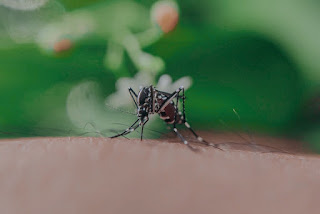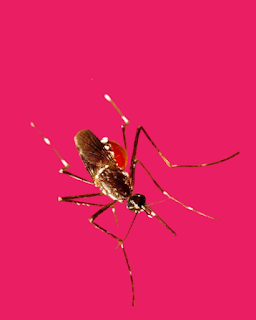Dengue fever, Causes, Diagnosis, Treatment, Prevention, Complications
 |
| Dengue fever, Causes, Diagnosis, Treatment, Prevention, Complications |
Dengue fever is a disease caused by the bite of a mosquito carrying the Dengue virus. This disease causes symptoms of high fever and flu. If not handled properly, dengue fever is life threatening.
Dengue fever is a disease with a number of cases that tend to increase every year. According to data from the Ministry of Health of the Republic of Indonesia for 2020, there were 95,893 cases of dengue fever throughout Indonesia, with 661 cases of which ended in death.
Dengue fever is divided into 2 types, namely dengue fever and dengue hemorrhagic fever. The difference between the two types of dengue fever is that there is leakage of blood vessels in dengue hemorrhagic fever, whereas in dengue fever it is not.
Dengue fever generally attacks children aged less than 15 years, but can also occur in adults.
Symptoms and Complications of Dengue Fever
The most common symptom of dengue fever is fever accompanied by headache, loss of appetite, nausea and vomiting. This condition can also be characterized by a red rash, pain behind the eyes, muscle aches, and swollen lymph nodes.
Patients with dengue fever generally recover about 1 week later. However, in some cases, the patient's condition can worsen and can end in shock.
Treatment and Prevention of Dengue Fever
Dengue fever treatment aims to relieve symptoms and avoid complications. Actions that can be taken by sufferers are to get enough rest and maintain the balance of body fluids by drinking lots of water. Sufferers can also take fever-reducing drugs, such as paracetamol.
The risk of dengue fever can be avoided by administering the dengue vaccine. In addition, activities to eradicate mosquito nests must be carried out regularly. The aim is to create an environment that is clean and free from mosquitoes that cause dengue fever.
Causes of Dengue Fever
Dengue fever is caused by the Dengue virus which is carried by the Aedes aegypti and Aedes albopictus mosquitoes. The Dengue virus enters the human bloodstream through the mosquito bite. Usually, these mosquitoes bite in the morning and evening.
Dengue virus transmission occurs when an infected person is bitten by an intermediary mosquito. The virus from an infected person will be carried by the mosquito and infect other people it bites. Even so, the Dengue virus is only transmitted through mosquitoes and not from person to person.
Dengue virus is divided into four types, namely DENV-1, DENV-2, DENV-3, and DENV-4. When a person is infected with one type of dengue virus and recovers, his body will develop lifelong immunity against that type of virus.
However, immunity to one virus does not rule out the possibility of infection by another type of dengue virus. In fact, someone who has been infected with the Dengue virus is at greater risk of being infected again with more severe symptoms.
Apart from having had a Dengue virus infection, another factor that can increase a person's risk of getting dengue fever is living or traveling to tropical areas. Dengue fever is also more at risk for infants, children, the elderly, and people with weak immune systems.
Symptoms of Dengue Fever
Based on the severity of the symptoms, dengue fever can be divided into dengue fever (dengue fever) and dengue hemorrhagic fever (dengue hemorrhagic fever). The following is an explanation:
Dengue fever
Dengue fever is a mild form of Dengue virus infection. The symptoms are almost like fever in general and generally start from the 4th to 7th day after being bitten by a mosquito (DHF incubation period). These fever symptoms generally subside in less than 1 week, but can also last up to 10 days.
Symptoms of dengue fever include:
- Fever 40°C or more
- Severe headache
- Pain in joints, muscles and bones
- Loss of appetite
- Pain behind the eye
- Nausea and vomiting
- Swollen lymph nodes
- Red rash (appears about 2–5 days after fever)
Dengue hemorrhagic fever
Dengue hemorrhagic fever (DHF) is a condition when the dengue fever experienced by the sufferer gets worse (critical phase). Usually, this phase occurs between the 3rd and 7th day after the symptoms appear.
In this phase, dengue fever sufferers may experience a decrease in fever temperature (below 38°C) for 1 day, then their body temperature will rise again the next day. This pattern is known as saddleback fever.
Many think that this decrease in fever is a sign of healing. In fact, precisely in this phase the patient should be monitored more closely. This is because in this phase the patient may experience bleeding and leakage of blood vessels.
The following are signs of dengue hemorrhagic fever to watch out for:
- Unbearable stomach pain
- Continuous vomiting (3 or more times in 24 hours)
- Bleeding, such as bleeding gums or nosebleeds
- There is blood in the urine, stool, or vomit
- Bleeding under the skin that looks like a bruise
- Short or rapid breaths
- Weak or tired
- Nervous
When to See a Doctor
Check with your doctor if you have symptoms of dengue fever, especially if people around you have been diagnosed with this disease.
Basically, dengue fever can be treated independently at home. However, patients must know the danger signs of DHF so they can immediately go to the doctor if these signs appear. This is to prevent DHF from developing into fatal complications.
Treatment of Dengue Fever
Based on the severity of dengue fever, the treatment given to patients can be divided into 2, namely:
Treatment of dengue fever
There is no specific method for dealing with dengue fever. Treatment is to relieve symptoms and prevent the viral infection from getting worse.
The doctor will advise the patient to do the following:
- Inadequate body fluids with lots of drinking to avoid dehydration.
- Meet nutritional needs with healthy foods to support the healing process.
- Enough rest.
- Take paracetamol to relieve fever. However, avoid using aspirin or non-steroidal anti-inflammatory drugs (NSAIDs), especially in children, because they can make bleeding worse or trigger Reye's syndrome.
- Avoid mosquito bites to reduce the risk of further transmission.
- Use insect repellent lotion or mosquito nets in the room.
Treatment of dengue hemorrhagic fever
If dengue fever develops into dengue hemorrhagic fever, the patient needs to be referred to the hospital for intensive care. The doctor will give intravenous fluids and closely monitor the patient, starting from the pulse, blood pressure, to the amount of urine excreted by the patient.
Dengue Fever Complications
Dengue fever that is not treated can cause serious complications, such as dengue shock syndrome (DSS). This condition is characterized by:
- Blood pressure drops
- The skin is wet and feels cold
- Irregular breaths
- Dry mouth
- Weak pulse
- The amount of urine decreases
In this condition, blood flow to all body tissues will decrease resulting in a lack of oxygen (hypoxia). This can cause seizures, damage to the liver, heart, brain and lungs, blood clots, and even death.
Prevention of Dengue Fever
There are several ways you can do to prevent dengue fever, namely:
Dengue vaccine
Severe dengue fever that causes dengue shock syndrome can be prevented by administering a dengue vaccine. This vaccine can be given to children and adults aged 9–45 years, 3 times 6 months apart.
Dengue vaccine contains 4 types of dengue viruses. Therefore, the vaccine is still given to people who have already been infected. This is to form immunity against different types of dengue viruses.
It is important to remember that the dengue vaccine should not be given to people who have never been diagnosed with dengue fever before, because it can increase the risk of severe dengue if the person is infected. Vaccine administration is also not recommended for children under 9 years of age, especially in the 2–5 year age group.
Eradication of Mosquito Nests
In addition to vaccines, dengue fever can be prevented through eradicating mosquito nests (PSN). PSN is carried out in two insecticide fumigations or fogging in 1 week intervals. The fumigation was carried out twice with the aim of killing mosquito larvae that could not be eradicated during the first fumigation.
Another PSN method is to run 3M-Plus regularly, especially during the rainy season. The 3M steps in question are:
- Drain water reservoirs, such as bathtubs or drains, at least once a week
- Close the water reservoir tightly
- Recycle items that have the potential to become breeding grounds for Aedes aegypti mosquitoes, such as used tires that can collect rainwater
In addition, also do the Plus steps to help prevent. The Plus Steps in question include:
- Set enough light in the house
- Installing mosquito nets in the ventilation of the house
- Sprinkle larvicidal powder (abate) on water reservoirs that are difficult to drain
- Use mosquito nets while sleeping
- Plant mosquito repellent plants
- Stop the habit of hanging clothes
In addition to the methods above, wearing loose clothing can also prevent mosquito bites. This is because mosquito bites can penetrate tight clothing. For added protection, use mosquito repellent lotions that contain N-diethylmetatoluamide (DEET).
Picture of Dengue Fever
Dengue fever is a severe form of Dengue virus infection. As with dengue fever, dengue fever begins with fever symptoms. Symptoms appear 4-7 days after the mosquito bite, and can last up to 10 days.
Dengue fever is a dangerous condition, which if left untreated can result in death. In this condition, blood vessels can experience damage and leaks, and the level of platelets or blood platelets drops.
Related Searches:
- dengue fever,
- dengue fever symptoms,
- dengue fever treatment,
- dengue fever vaccine,
- what is dengue fever,
- dengue fever band,
- dengue fever rash,
- 7 warning signs of dengue fever,
- symptoms of dengue fever,
- dengue fever preventions,
- dengue fever maps,
- dengue fever death rate,
- big island dengue fever,
- dengue fever viruses,


Post a Comment for "Dengue fever, Causes, Diagnosis, Treatment, Prevention, Complications"